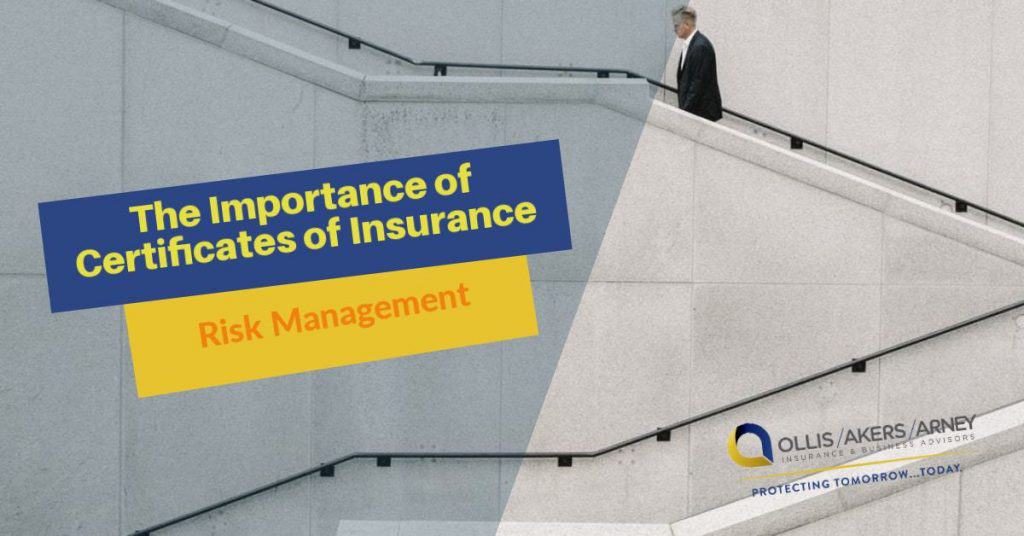When accounting for risks related to contracted work, securing your own insurance is not always enough. It’s critical that your partners are covered as well. This is particularly important when you consider that, following an incident involving a contractor or vendor, your business could be the one held liable for any damages that occur.
To protect against this sort of risk, many organizations turn to certificates of insurance (COIs). COIs are used across a variety of commercial business relationships and essentially serve as proof that a particular party has an insurance policy in effect.
While you may require your partners and vendors to carry insurance in your contracts, coverage needs can change quickly, making it necessary to regularly review the policies. In addition, contractors and vendors may not be honest about what insurance they have in place, making you wrongfully assume you are protected.
Before allowing contractors to perform work on your property or on your behalf, asking for a COI is a must. This can help you in several ways:
- COIs can keep companies from taking on unnecessary risks if a contractor is responsible for a loss and is not properly insured.
- COIs can provide protection in the event that a contractor is injured on your property while performing work.
- COIs ensure organizations are compensated if contracted work is done improperly or not completed.
Managing COIs can pose an administrative challenge, and businesses need to have procedures in place to collect and maintain them effectively. Many organizations choose to automate this process as much as possible, opting for systems that notify them when a COI is required but is no longer in effect.
Learn more about Certificates of Insurance
To learn more about COIs, contact Ollis/Akers/Arney Insurance & Business Advisors today.


